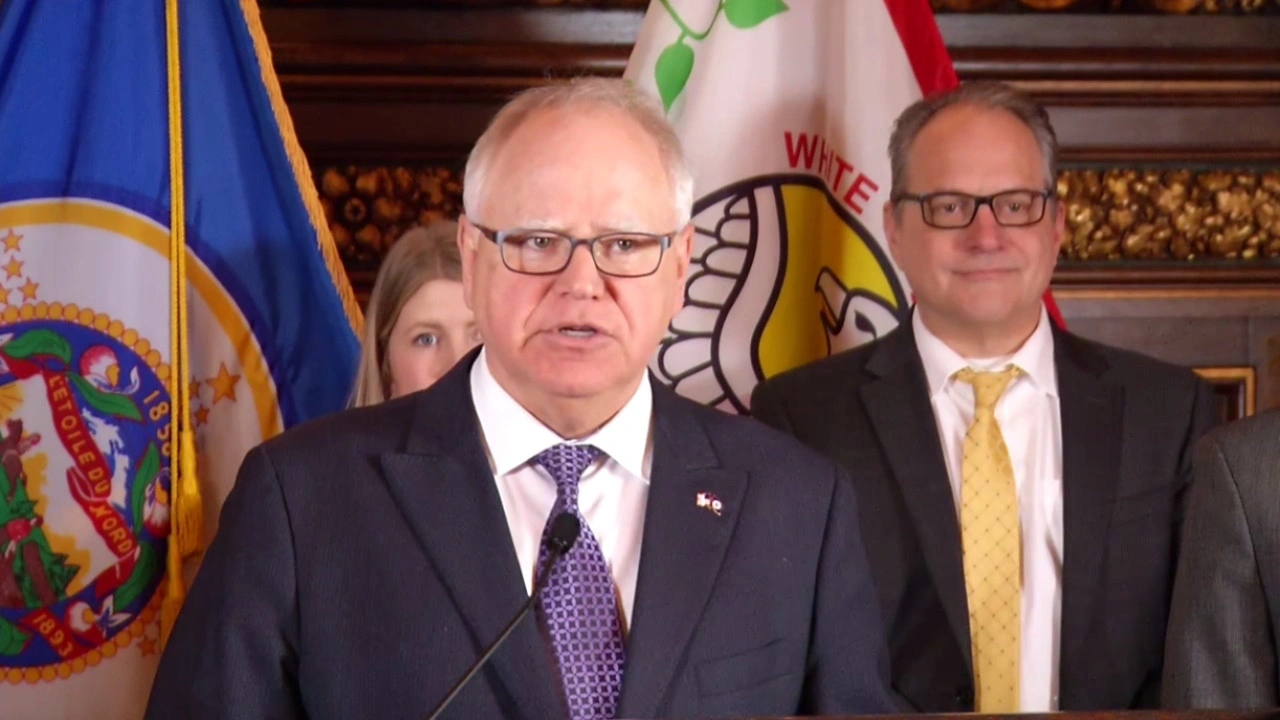Gov. Walz Announces $380 million in state grants for transportation projects

(FILE) Gov. Tim Walz speaks during a press conference announcing a budget target agreement on March 21, 2023. (KSTP-TV)
(ABC 6 News) – Governor Tim Walz announced on Tuesday that the Minnesota Department of Transportation (MnDOT) will allocate $380 million to fund eight new infrastructure projects.
The funding is through the state’s Corridors of Commerce program.
“We’re making historic investments in our state’s transportation system to improve the safety and connectivity of communities across the state,” said Gov. Walz. “We depend on our roads and highways to safely get us to our jobs, education, child care, and businesses. These projects help grow our economy and support our goal of making Minnesota the best state to live, work, and grow up in – no matter where you live.”
The projects receiving funding in 2023 include:
- TH 14/CSAH 44 (Byron) – Construct a grade separation: $60,000,000
- TH 13 (Savage/Burnsville) – Grade separations from Quentin to Nicollet Aves: $96,000,000
- I-94 (Albertville to Monticello) – Lane expansion: $78,000,000
- TH 371/TH 210 (Baxter) – Construct a grade separation: $58,000,000
- TH 23/MN 9 (New London) – Construct a grade separation: $33,000,000
- TH 65 (Blaine) – Grade separations from 103rd to 117th Aves: $30,000,000
- TH 53 (Eveleth to Virginia) – Roadway improvements: $18,000,000
- TH 10 (Coon Rapids) – Lane expansion from CSAH 78 to CSAH 9: $8,000,00
This is the fourth round of Corridors of Commerce funding provided by the Minnesota Legislature and includes a total of $403 million, including $250 million authorized by the Legislature in 2021 and $153 million provided in 2023. $22 million will be reserved for project readiness activities for potential future Corridors of Commerce candidate projects.
The Corridors of Commerce program was created by the Minnesota Legislature in 2013 with a goal of focusing transportation investments on state highway projects that directly and indirectly foster economic growth for the state of Minnesota. The program is outside of MnDOT’s regular State Road Construction program and Corridors of Commerce funding is dependent on legislative appropriation. The authorizing statute (161.088) also includes specific requirements for project eligibility and scoring.
More information about the Corridors of Commerce program can be found HERE.